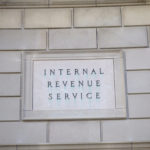Who wins when the mortgage arrearages in the Chapter 13 plan are less than the filed proof of claim?
I have to admit that this has puzzled me for years, and the approaches of the three Chapter 13 trustees I practice before are different and without a an articulated theoretic basis.
So I embraced a case recently featured at ConsiderChapter13.org: Euliano, a bankruptcy decision by Judge Boroff in Massachusetts. His explanation is both logical and clear. The confirmed plan controls the treatment of the claim; the allowed proof of claim controls the amount of the claim.
Therefore, the plan term provided that the arrears would be cured; the proof of claim defined how much was required to effect cure.
In Euliano, the plan contemplated curing mortgage arrears set out as $8,000, when the proof of claim came in for twice that. Neither debtor, trustee, nor creditor took any steps to resolve the issue pre confirmation and the plan was confirmed.
The plan pot was therefore insufficient to pay the filed proof of claim, which is presumptively valid, until someone contests it.
After informal efforts to get the debtors to address and resolve the feasibility issue, the trustee brought a motion to dismiss. After scolding all parties for inattention, Judge Boroff dismissed the debtor’s case for delay prejudicial to creditors.
Lesson for debtor’s counsel is clearly to identify inconsistencies between plan and claim, and take prompt action to either amend the plan to conform to the claim, or object to the claim to get a determination of just what is required to cure.
[The decision is found at 2010 Bankr. Lexis 4253 and 2010 WL 4923649.]
Image courtesy of superwebdeveloper









Judge Boroff noted his disagreement with another case by Judge Hoffman in the same district, who ruled that the plan won and any remaining unpaid balance would be collectible after the plan ended. I believe one of these two cases cited to a New Hampshire case in agreement with Judge Hoffman.
So my confusion on this subject is justified?
Yes, much confusion over this topic. The question is whether this district split will end up at the BAP or at the 1st Circuit in the future.